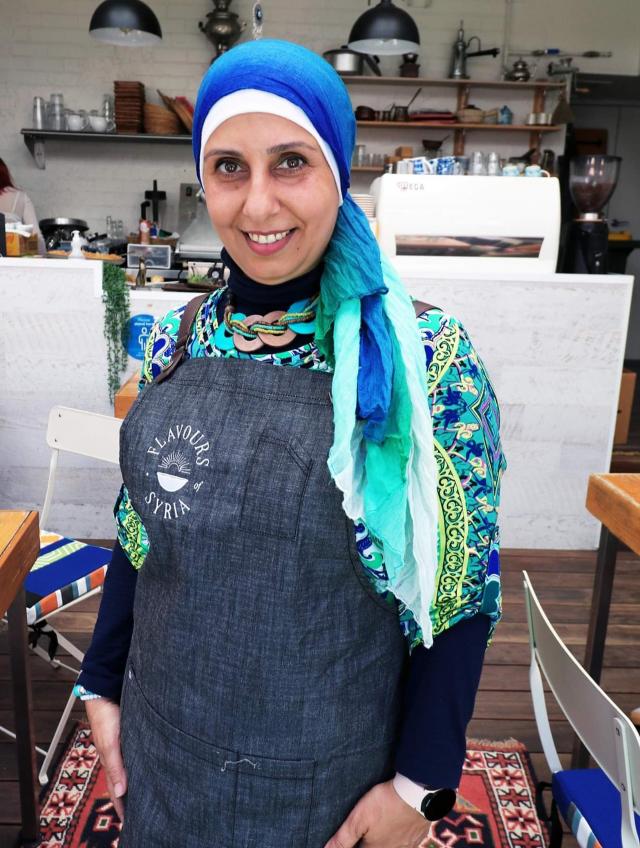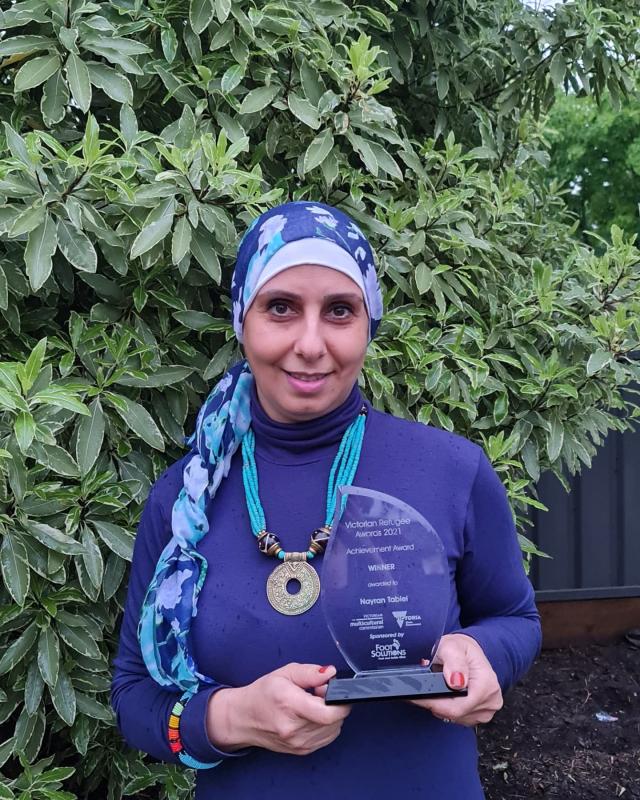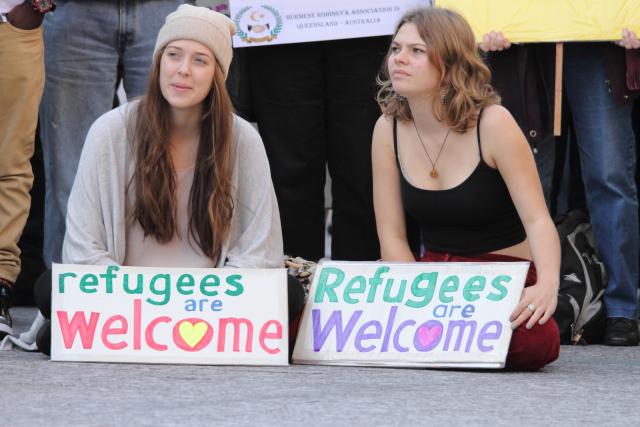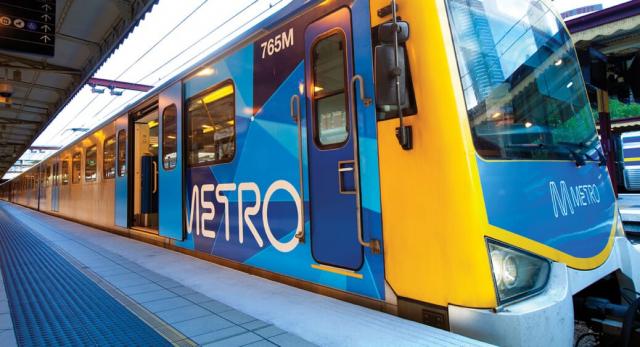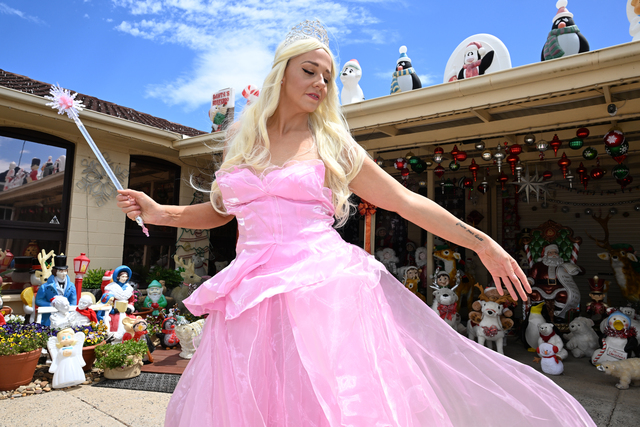Star Weekly is taking a look back at 2023. Here’s one of our biggest stories from last year.
When Nayran Tabiei heard the news, she sat in her St Kilda cafe and cried tears of joy.
On February 13, Immigration Citizenship and Multicultural Affairs Minister Andrew Giles announced the federal government was delivering on Labor’s election promise to abolish Temporary protection Visas (TPVs) and Safe Haven Enterprise Visas (SHEVs), and provide a pathway to permanency for refugees that have been held in a state of limbo for a decade.
For Ms Tabiei, getting the new Resolution of Status Visa means she may soon be reunited with her three sons for the first time in 12 years.
In 2011 Ms Tabiei was forced to leave her home, her business and her life when war broke out in her home of Damascus, Syria.
Ms Tabiei, her husband, and her four-year-old daughter ended up in Jakarta. She said as a last resort they boarded a smuggler’s boat to Australia.
“The way we came here was not normal. We saw a lot of people killed on the way, being eaten from sharks, the boats were broken. None of the people know how many people die on the way because we don’t have evidence,” she said.
After her journey, Ms Tabiei spent a year in detention on Christmas Island, before being settled in Braybrook on a bridging visa. Her three sons ended up in Iran.
In the years since, Ms Tabiei has been on a cycle of temporary visas that left the future uncertain, and restricted her from certain freedoms, such as reuniting with her family.
She was still determined to work, first as a volunteer cooking teacher, English teacher, and playgroup facilitator.
Ms Tabiei has given speeches on human rights, and in 2021 was a recipient of the Victorian refugee award.
Eventually she began a catering business, which was paused during COVID but has since been reborn as a successful cafe, Flavours of Syria, where she employs many newcomers to Australia.
Ms Tabiei is passionate about her work, getting to present her culture and “putting a smile on the face of people when they eat the food”.
“It’s so great to see people that love the food, love the environment, I’ve built a community here,” she said.
“I feel I’m a mum, and I support my children, and I show them we can do things, even in war times…I tell them you are alive, you are breathing, you should do work. Keep going.
“A lot of people really work hard to show people that we didn’t come here to take any money. I came here for a safer place.”
Mr Giles said all people on TPVs and SHEVs have been found to be refugees, and are “owed Australia’s protection”.
“TPV and SHEV holders work, pay taxes, start businesses, employ Australians and build lives in our communities- often in rural and regional areas. Without permanent visas however, they’ve been unable to get a loan to buy a house, build their businesses or pursue further education,” he said
“It makes no sense, economically or socially, to keep them in limbo.”
For others, like Obaidullah Mehak, the announcement was welcomed, but after a decade of uncertainty their faith in the system has diminished.
“Today I feel like I can start living again and that this is the end of the torture of uncertainty,” he said.
“But to be frankly honest, you don’t believe it until it happens, so unless I see permanent residency in my hands, it all looks like a dream because 10 years we have lived like this.”
Mr Mehak, a lawyer and human rights activist, was forced to flee Afghanistan in 2013 after falling foul of the Taliban and powerful warlords.
His work in his home country was extensive. He had advised the Afghanistan government on policy, electricity, telecommunications, and was instrumental in setting up a justice system to address the opium trade.
Later, he moved into human rights, specifically advocating for the rights of women and children in Afghanistan. He said he had also “risked his life” to free two Australian soldiers who had been kidnapped.
Less than a month before Mr Mehak was due to speak at a United Nations conference in Indonesia on behalf of the Afghan Civil Society in 2013, he was shot twice.
Once in Indonesia he realised that if he returned to his home his death was “certain”.
“I never wanted to leave Afghanistan, I was doing well, I had name, fame, and was passionate about the lives of so many,” he said.
But with no other choice, he left without his family on a boat to Australia.
After being held in detention in Darwin, Mr Mehak arrived in Melbourne’s north-west.
Mr Mehak said he was “grateful” for being allowed to stay Australia, but had become frustrated at being so restricted.
He said he was living in overcrowded housing, became sick, depressed, and experienced racism that he was scared of reacting to, because he was afraid of the attention of the justice system.
“That visa brought hell upon us,” he said.
“There are days that I wouldn’t go out because I was scared of being perceived as doing something wrong, my life was frozen, it was imprisonment.
“The door was shut, and I was in absolute darkness.”
For 10 years he was unable to pursue his goals, first being unable to work, then being unable to afford the $70,000 international student tuition for further study, and unhirable his field of expertise because of his temporary visa.
“Between 30 and 40, that’s where you either make it or you fail. I don’t have a house, I have nothing. I had much bigger dreams,” he said.
Mr Mehak is still hopeful things can improve if he obtains a PoS visa.
“I want to complete a higher education degree. I want to establish a business as well as work for a really good cause. I want to bring my family over, I want to live with my family after all these years,” he said.
“I want to be able to travel freely, I want to really feel freedom for the first time in the past ten years. I want to feel free.”
Asylum Seeker Resource Centre advocacy and campaigns director Jana Favero congratulated the federal government on the decision, but was now “eagerly awaiting” details on how the transition will be handled.
“After 10 years of bravery and struggle, people seeking asylum and refugees have prevailed against an unjust system, they will now be able to rebuild their lives with the rights they were so long denied,” she said.

